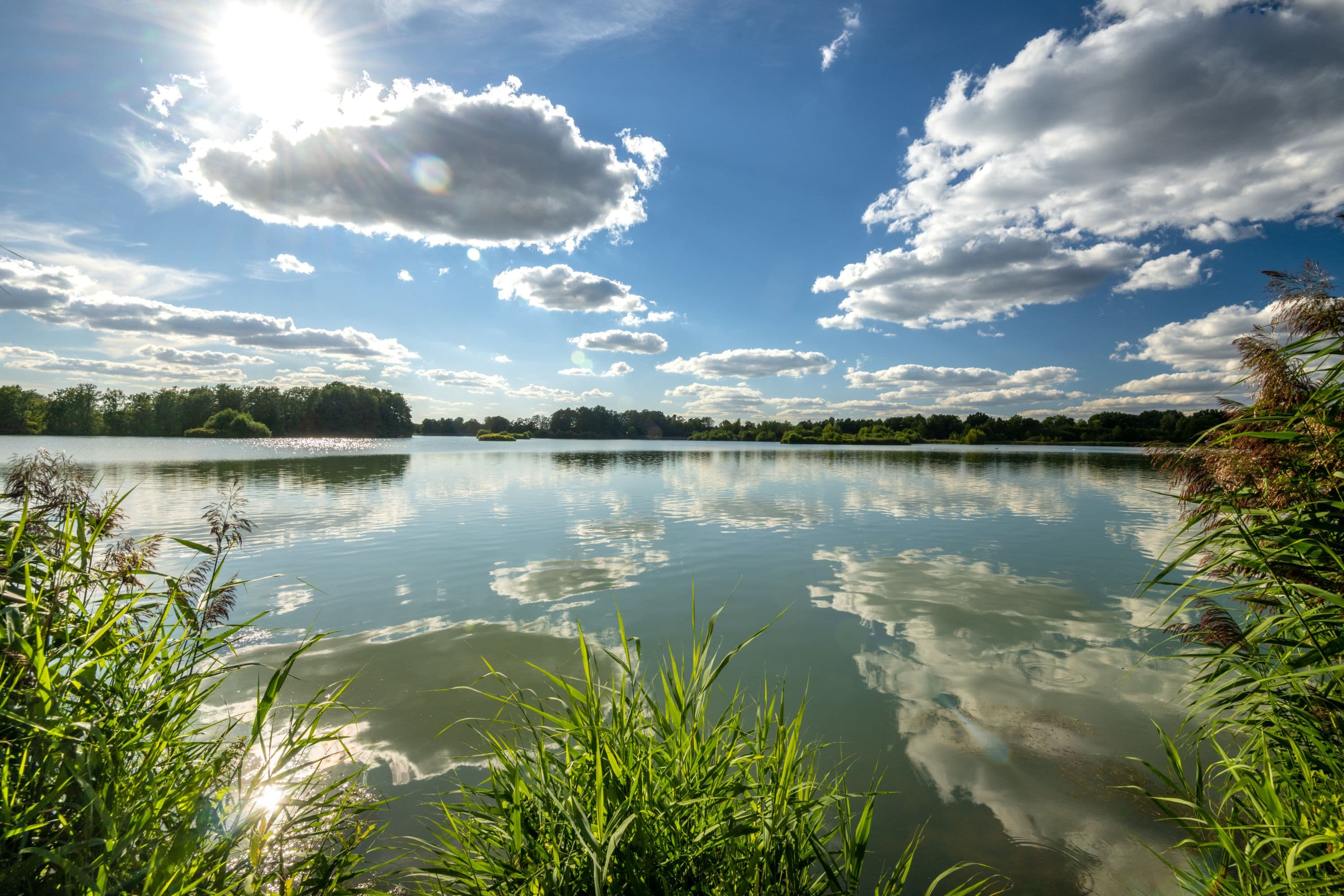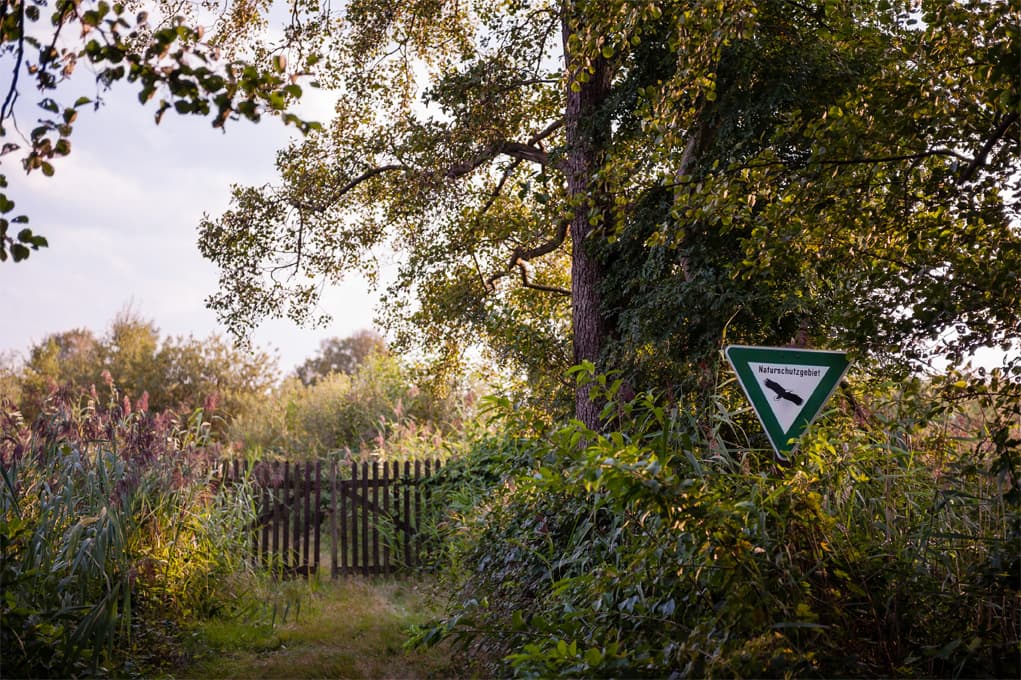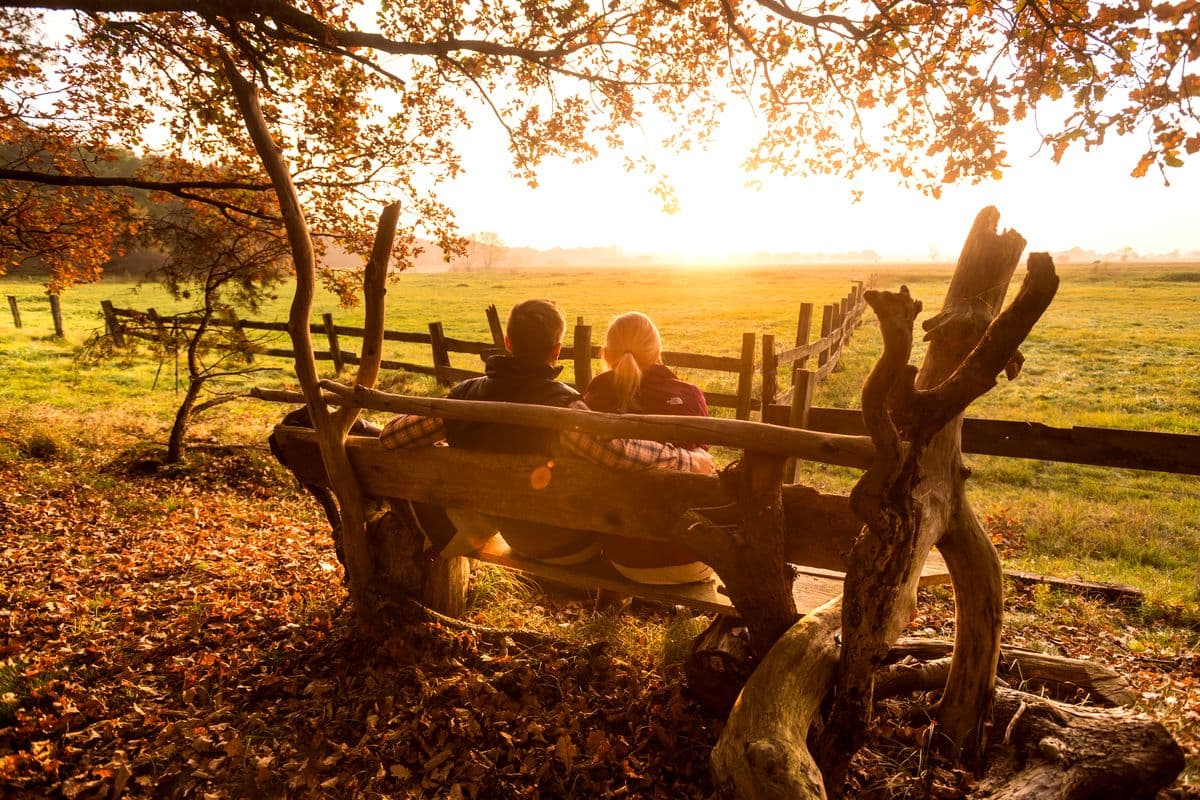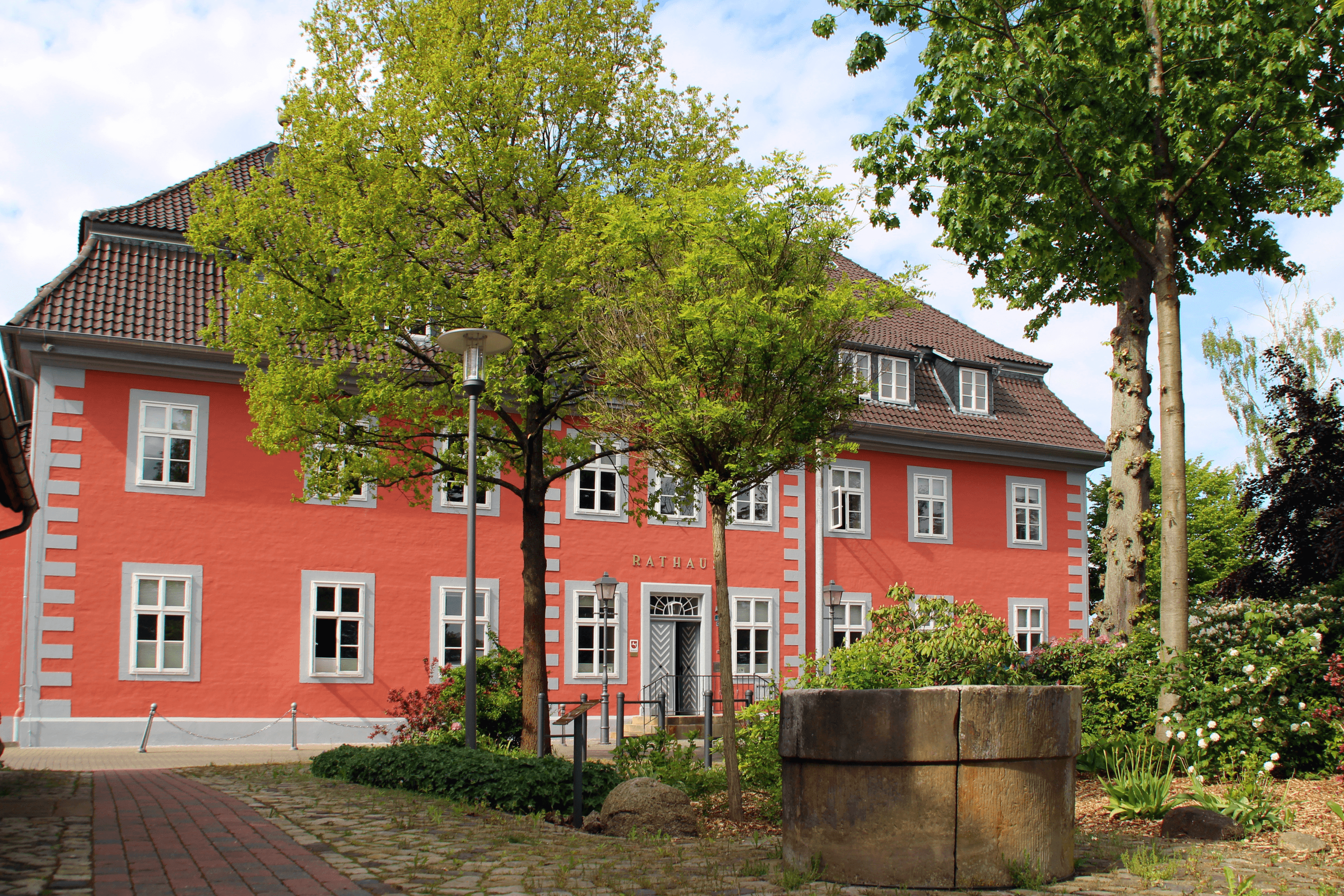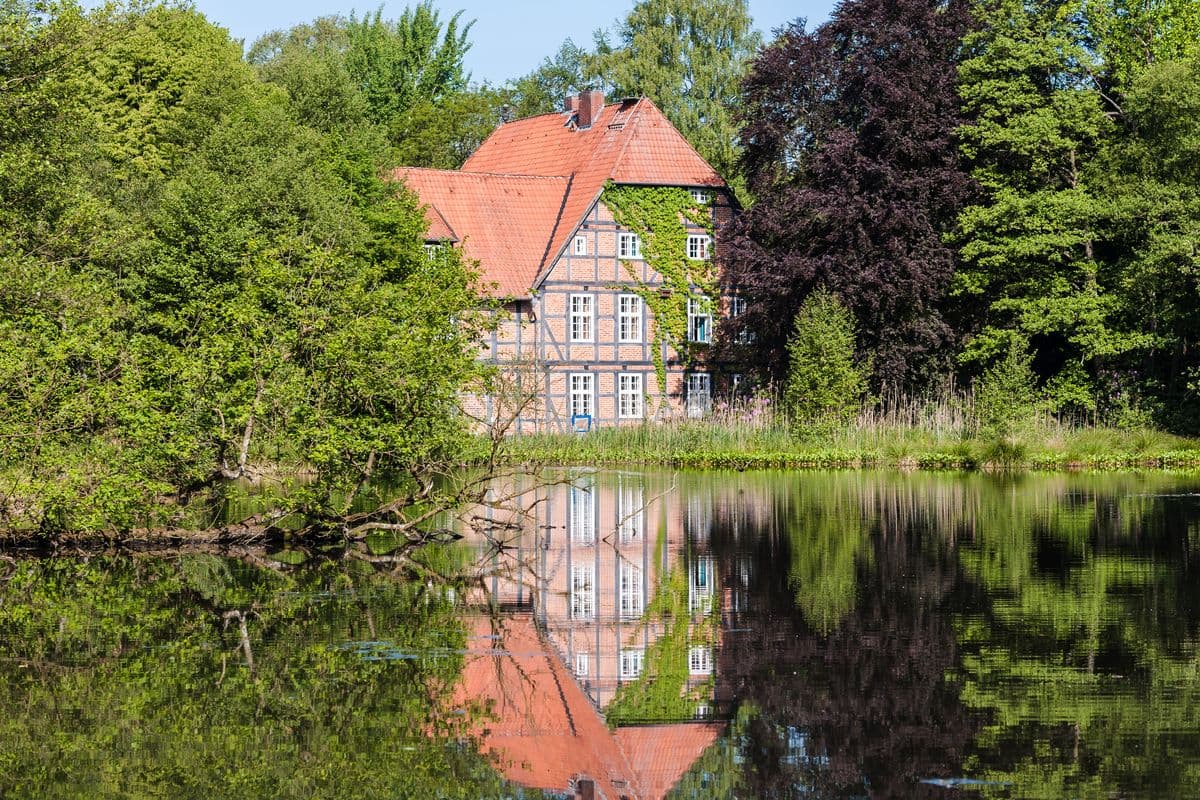
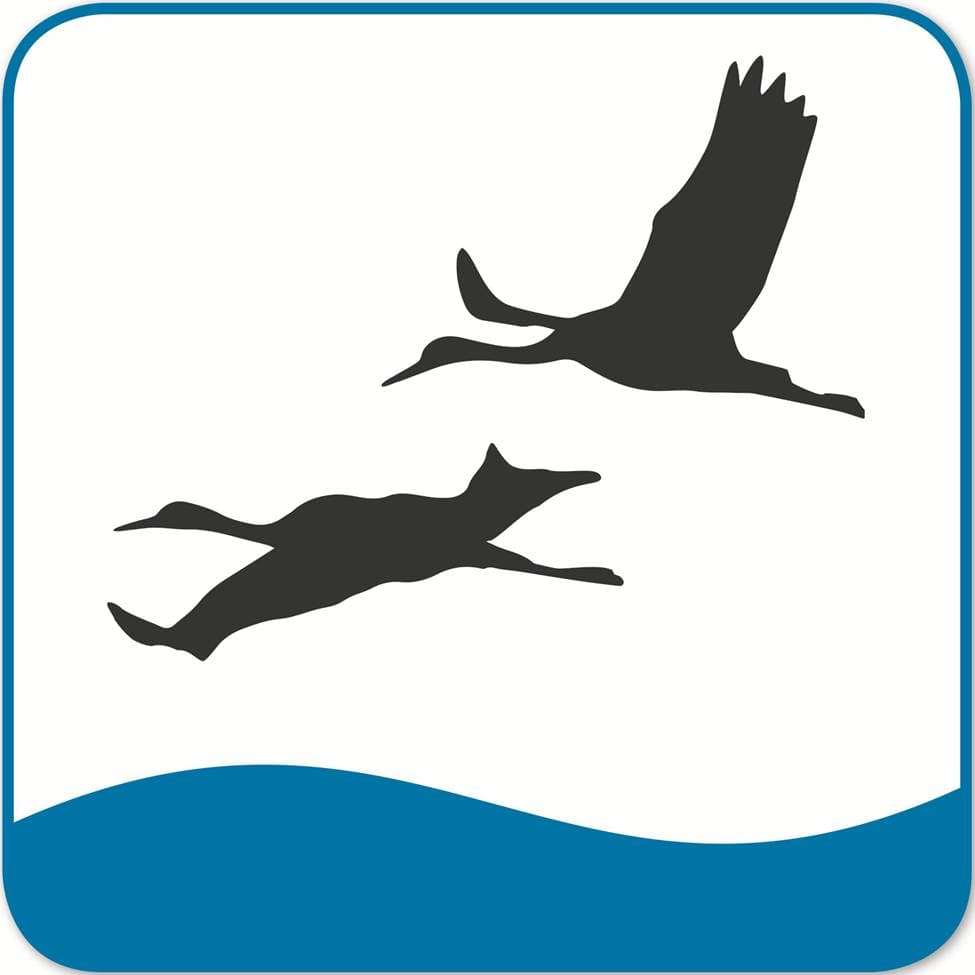
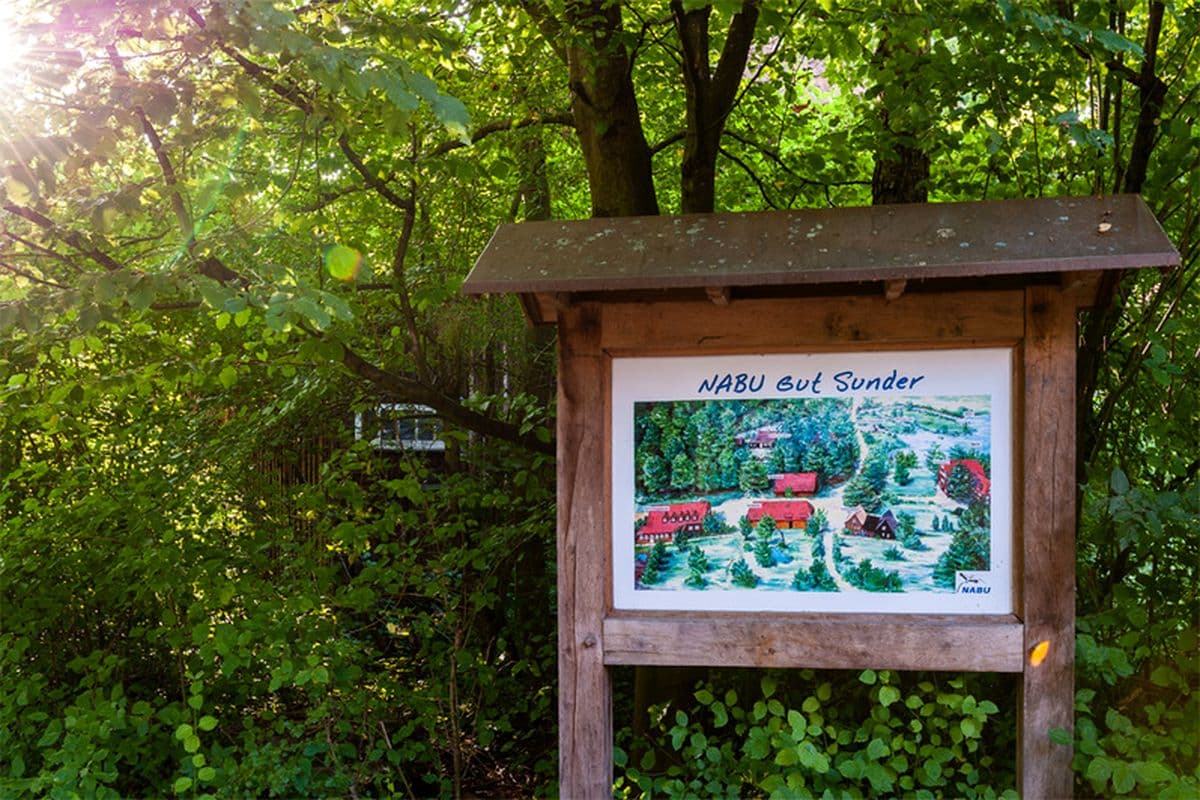
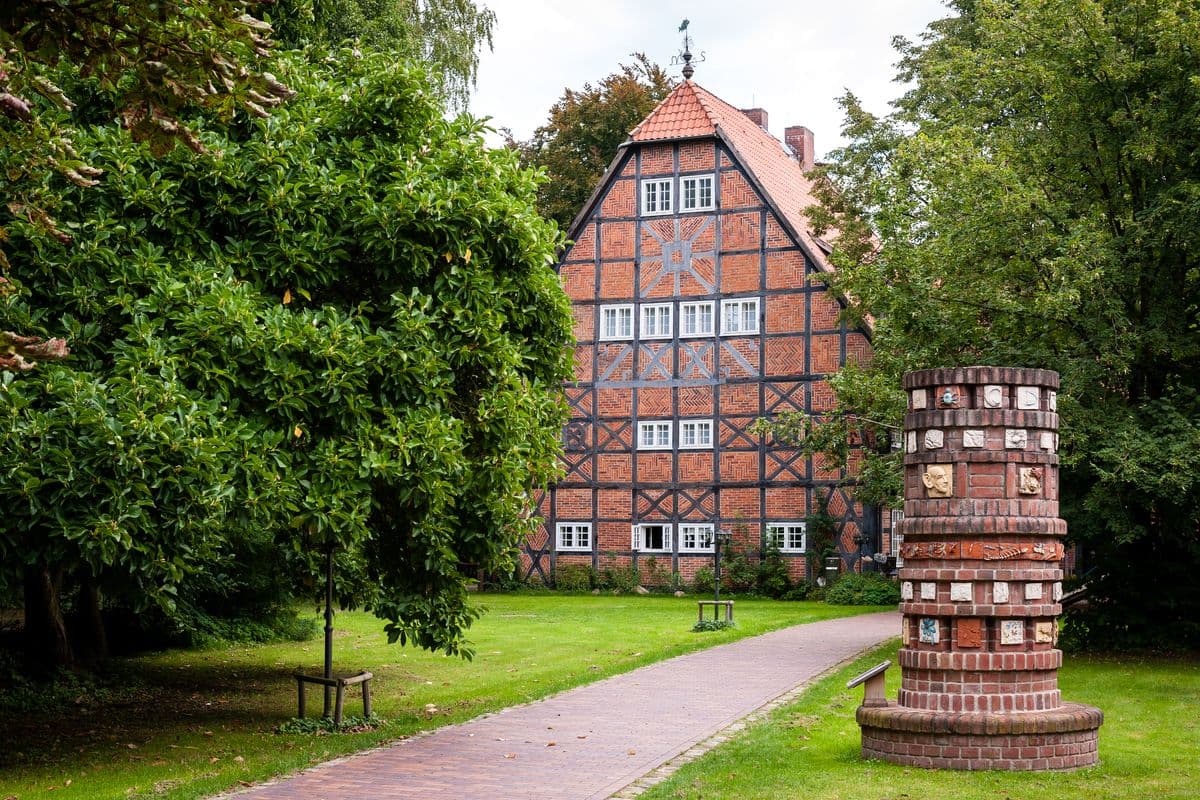
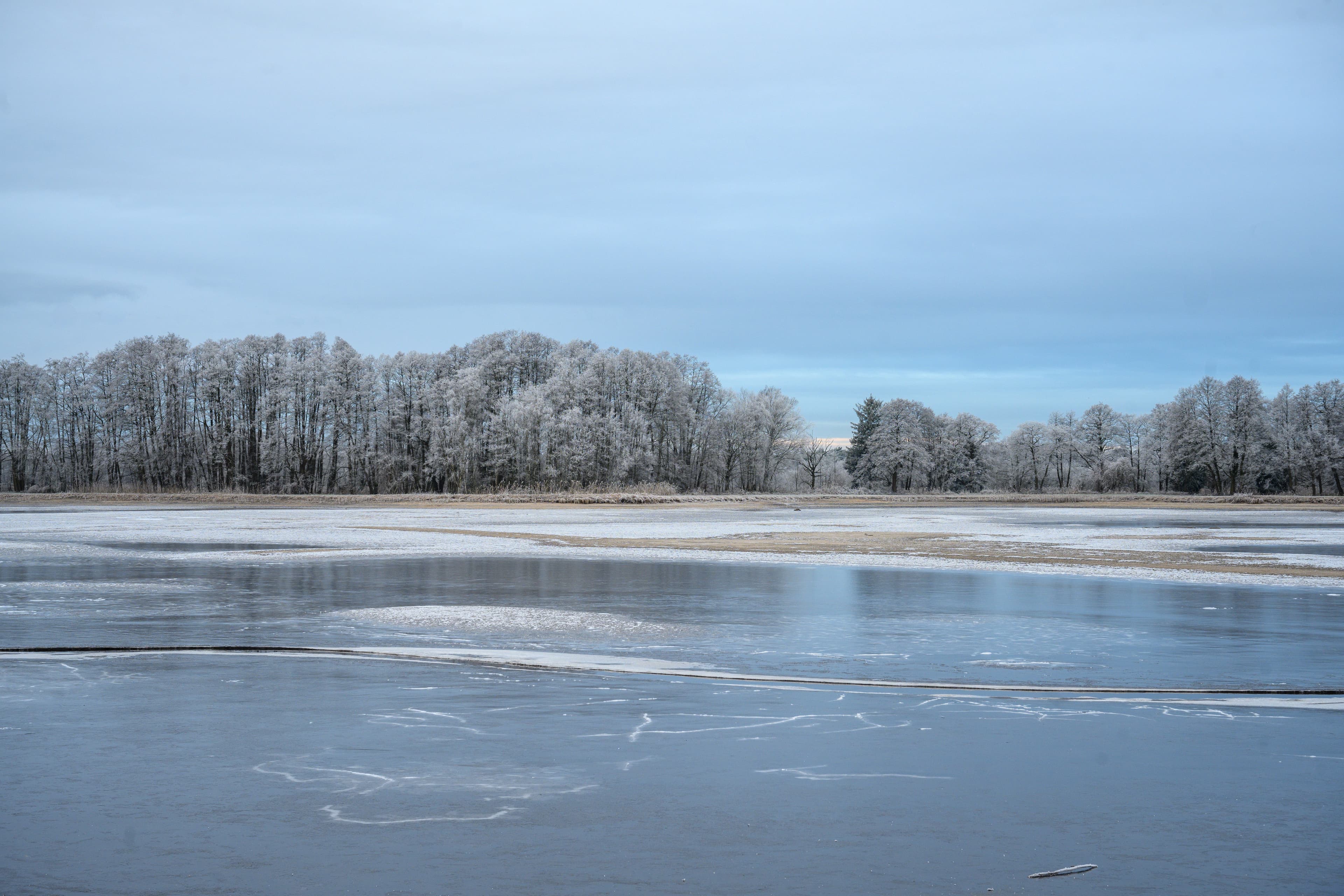
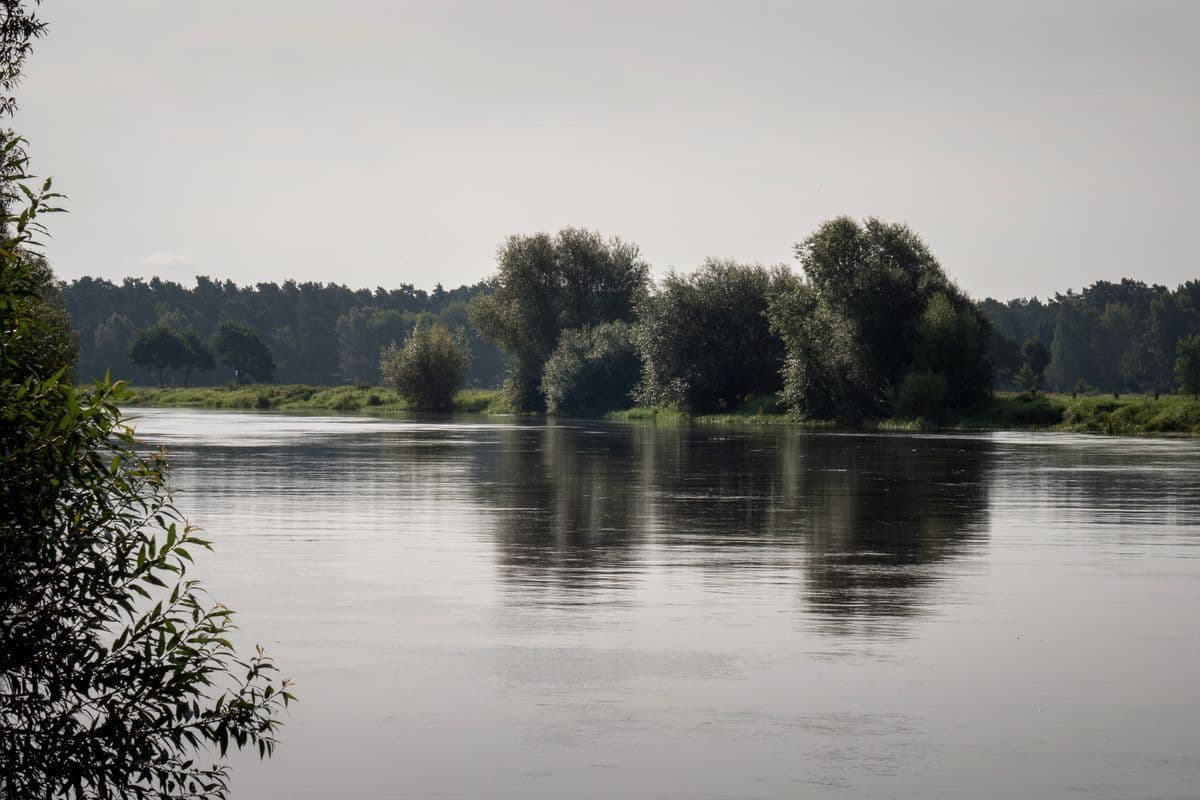
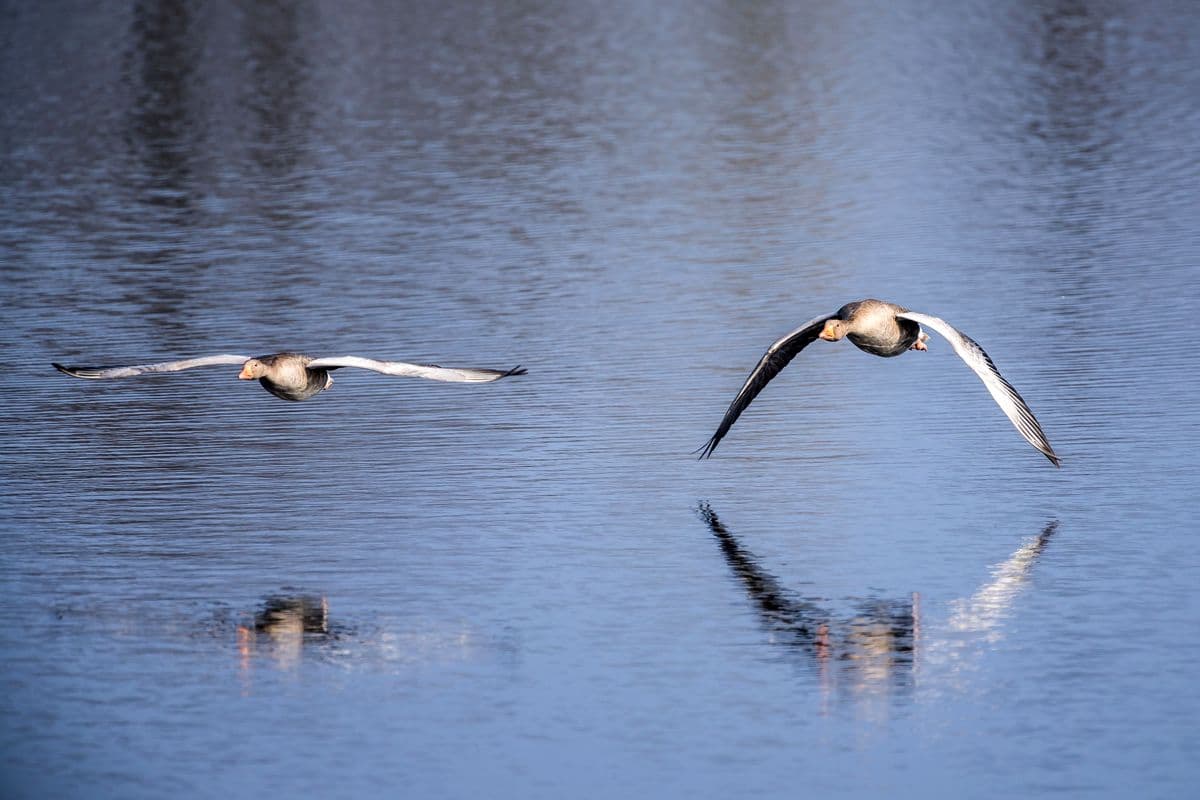
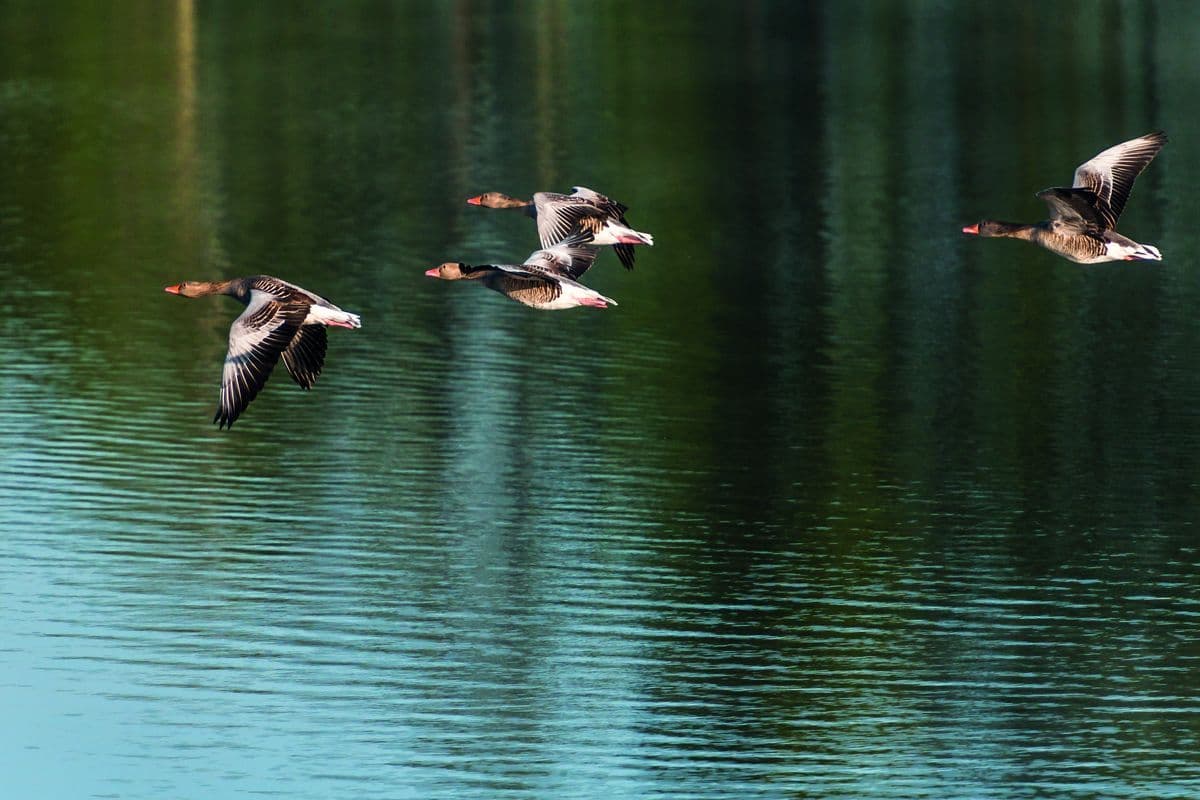
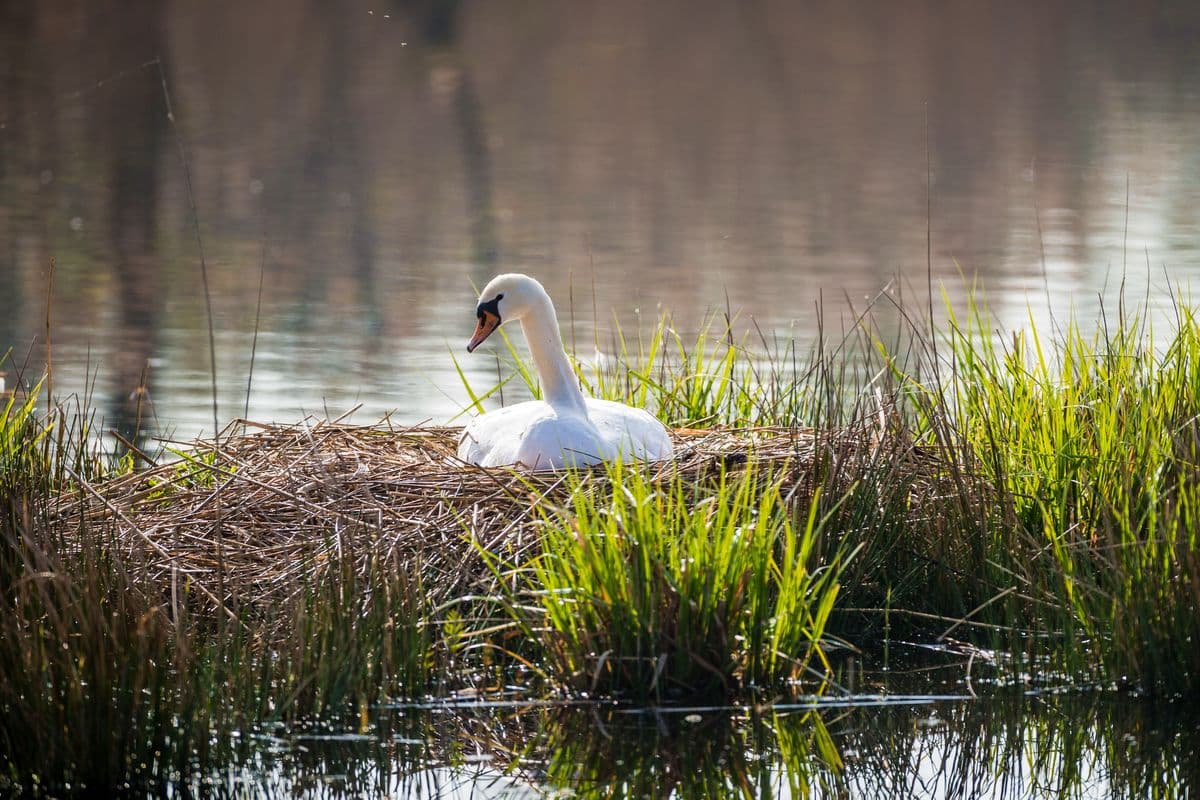
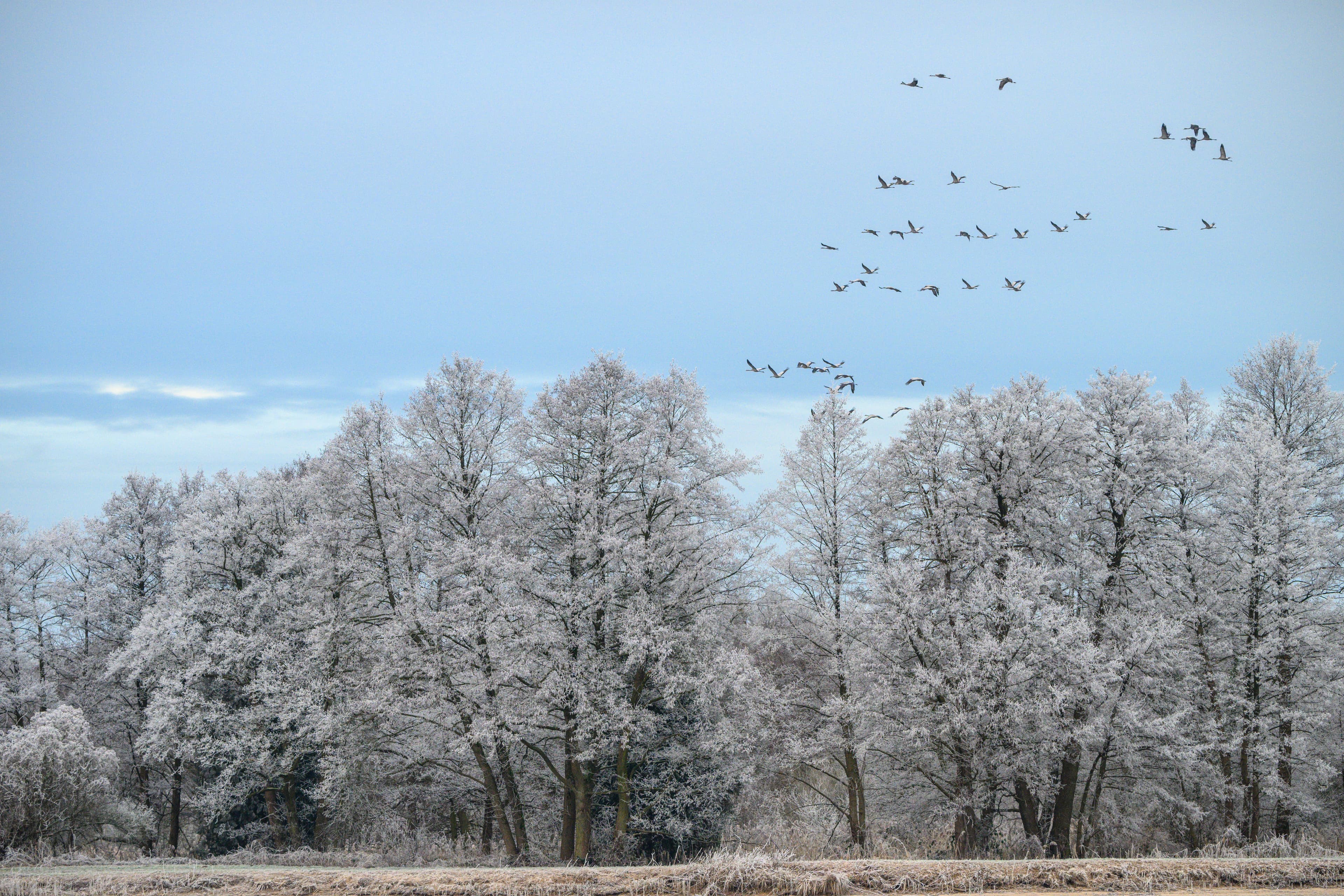
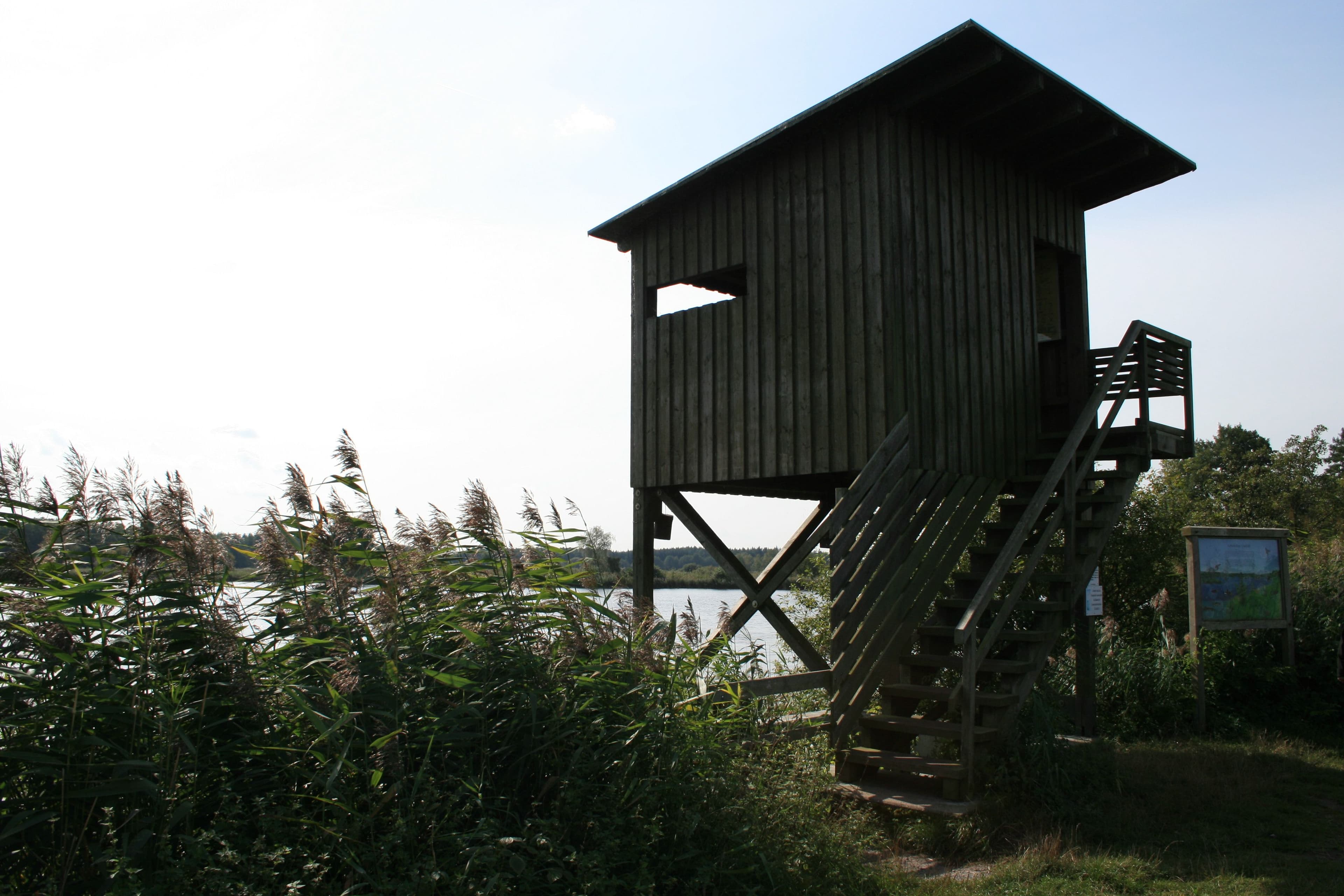
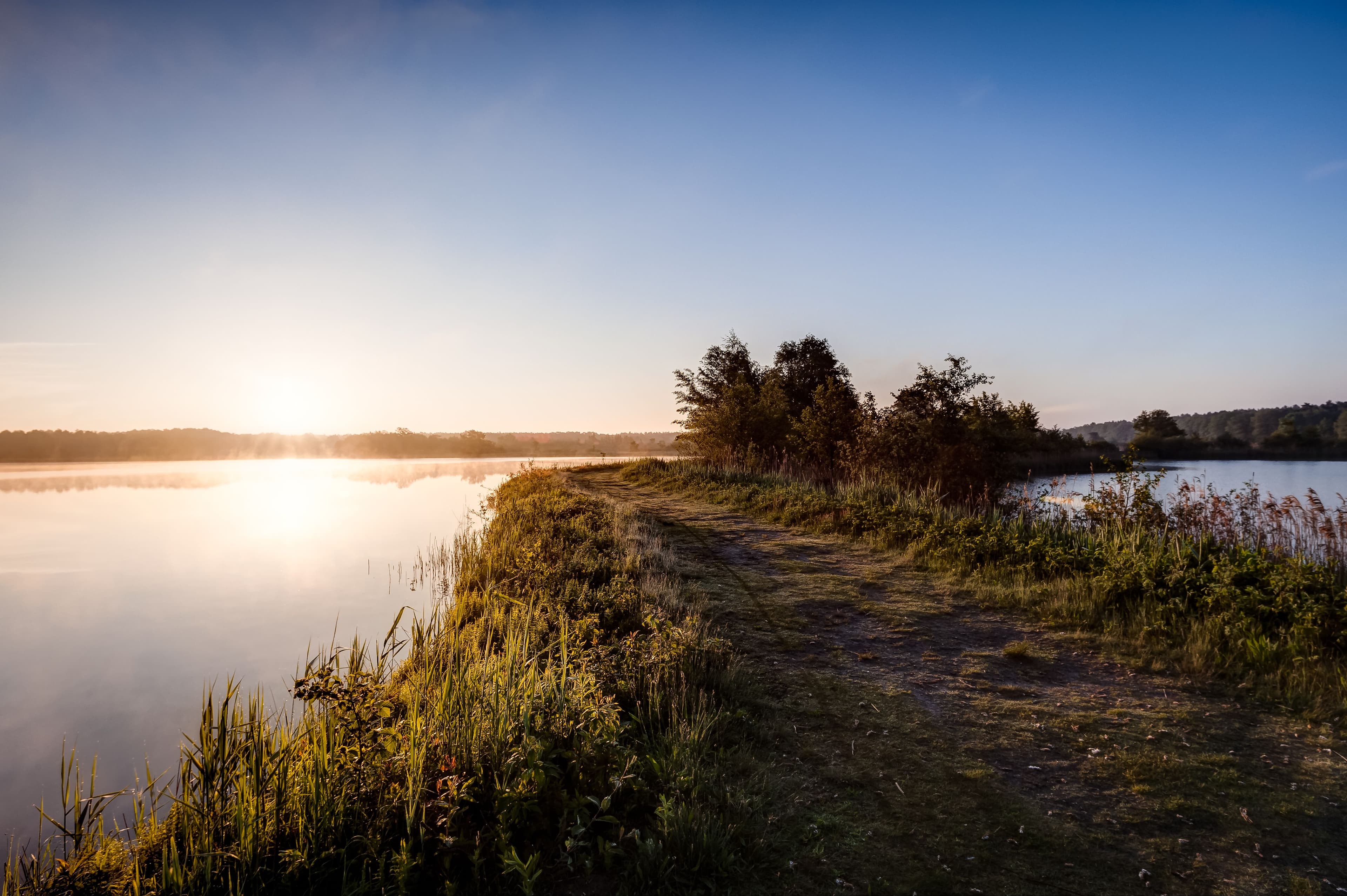
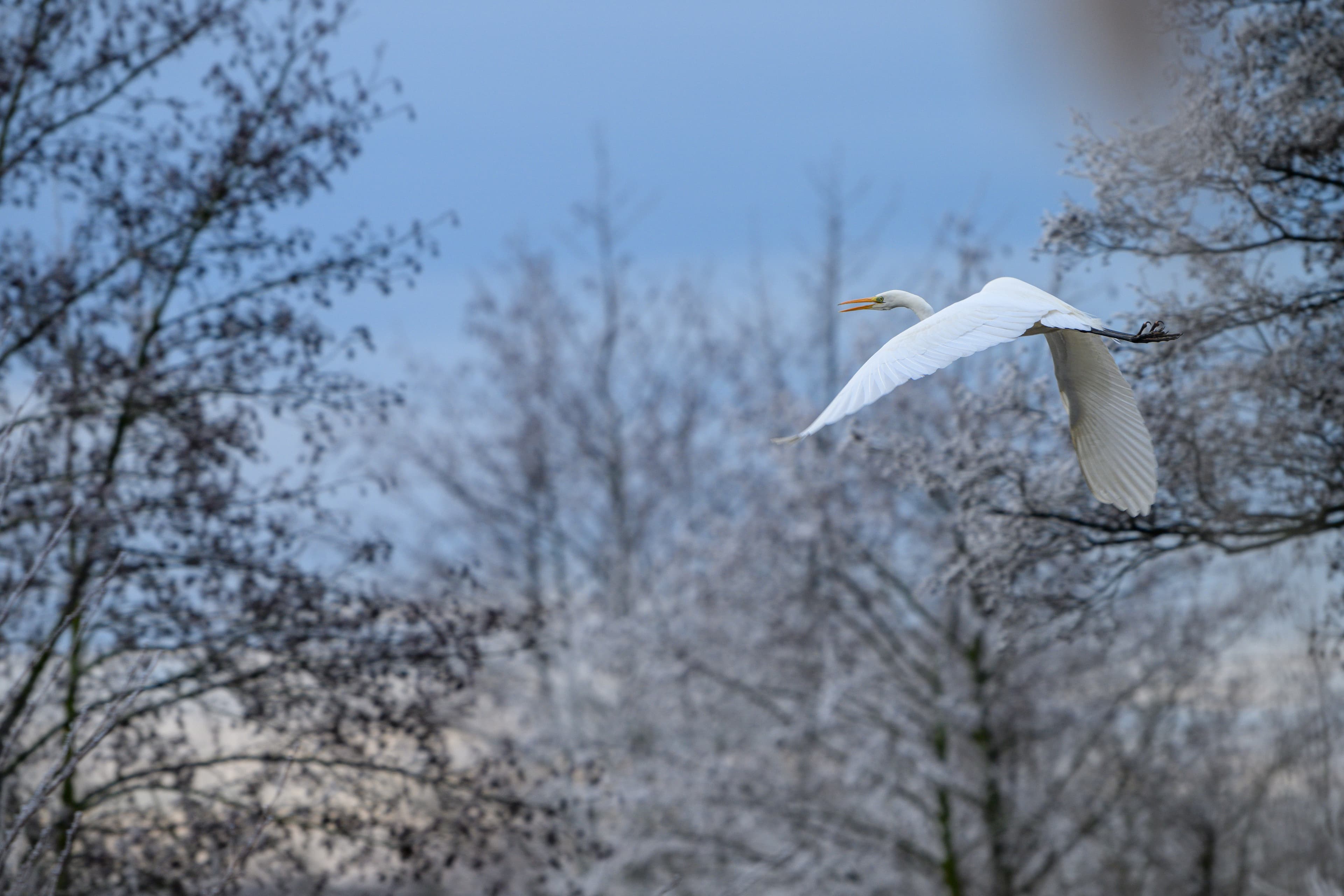
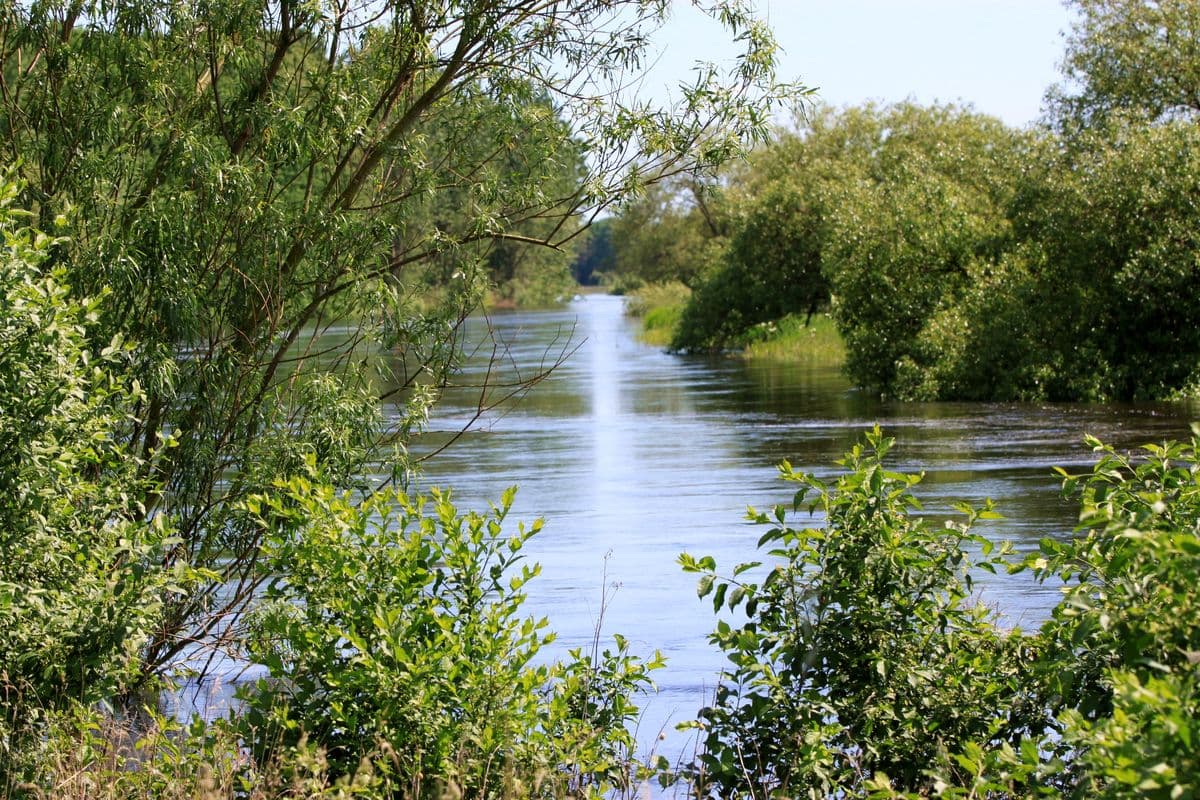
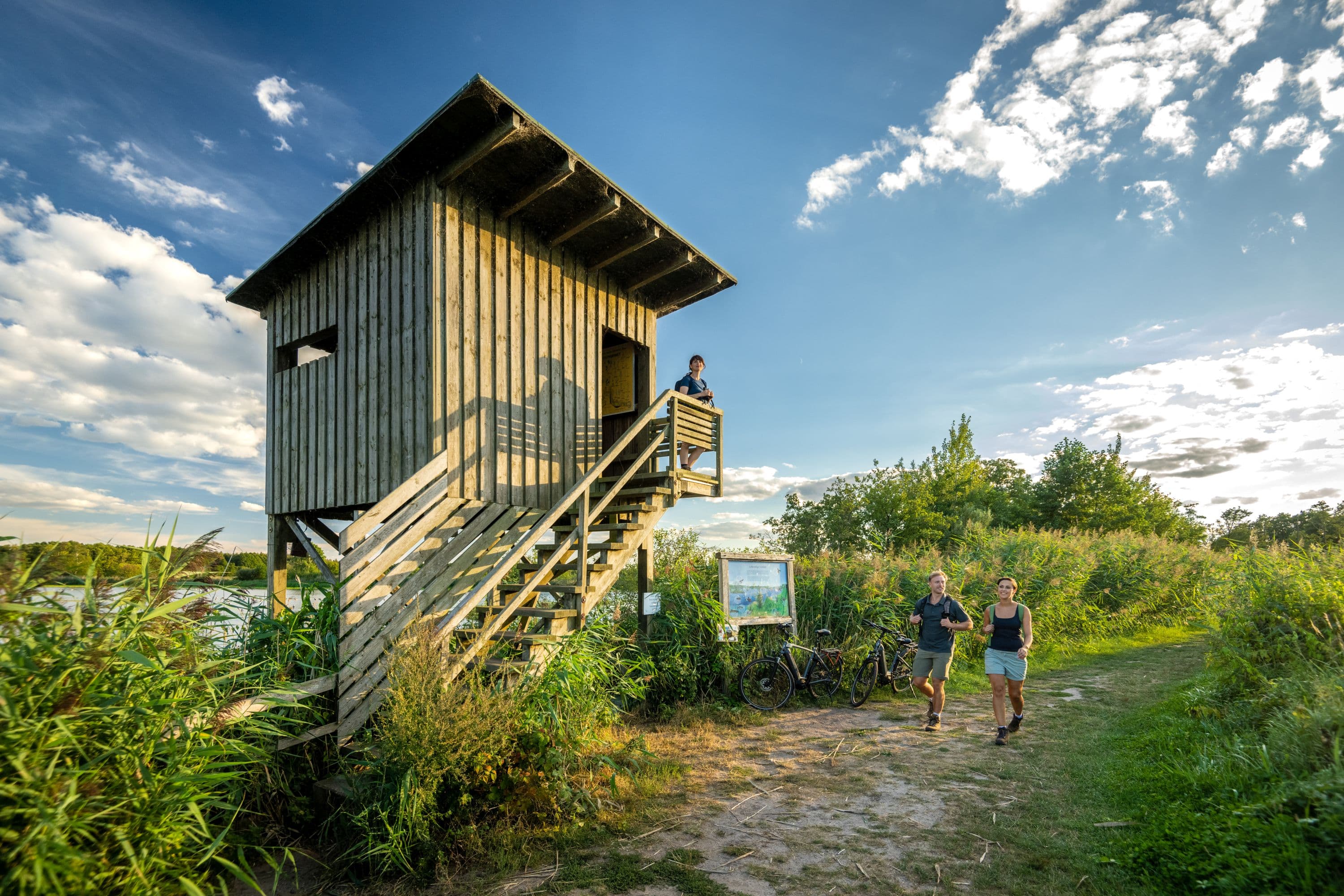
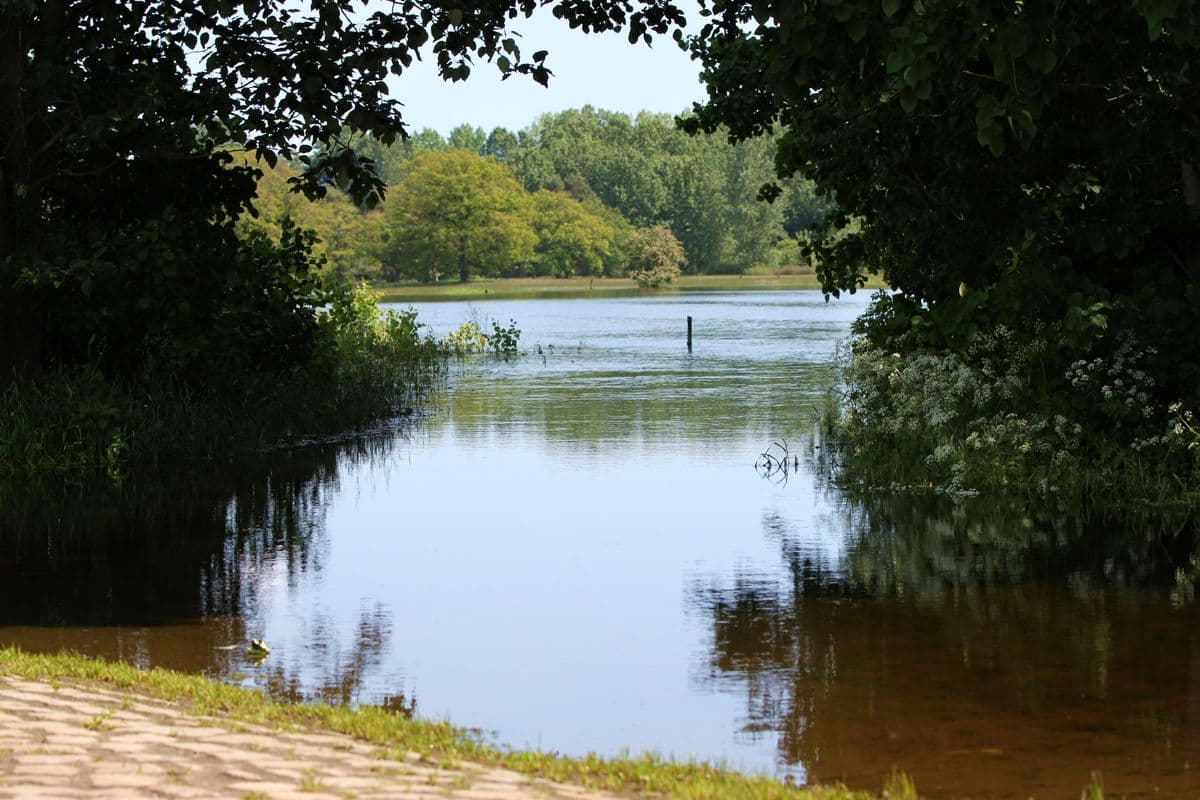
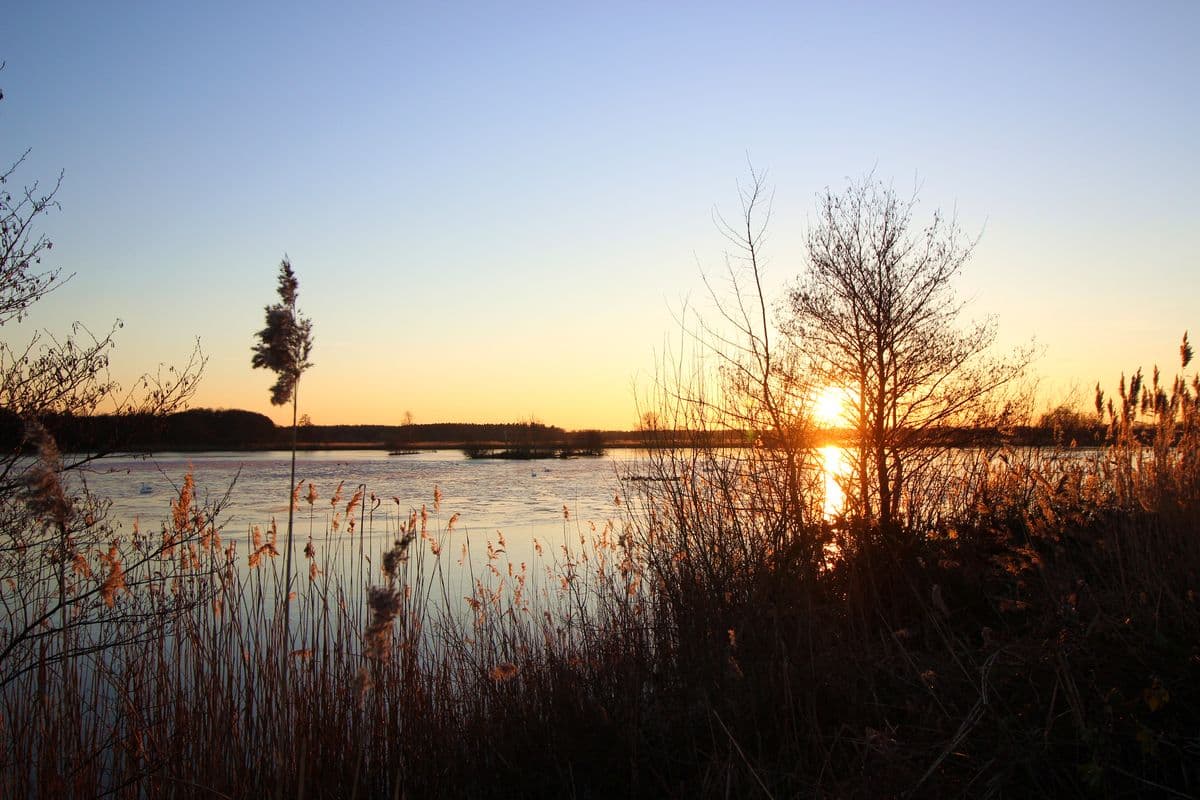
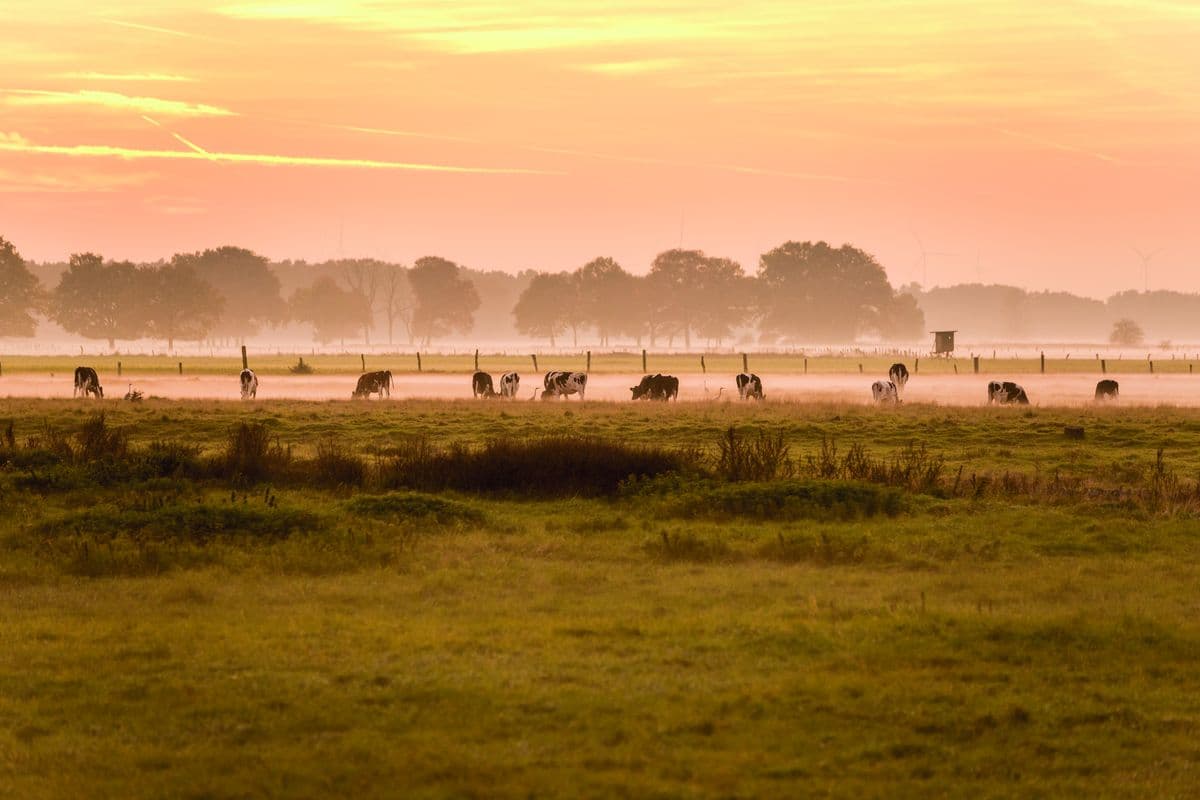
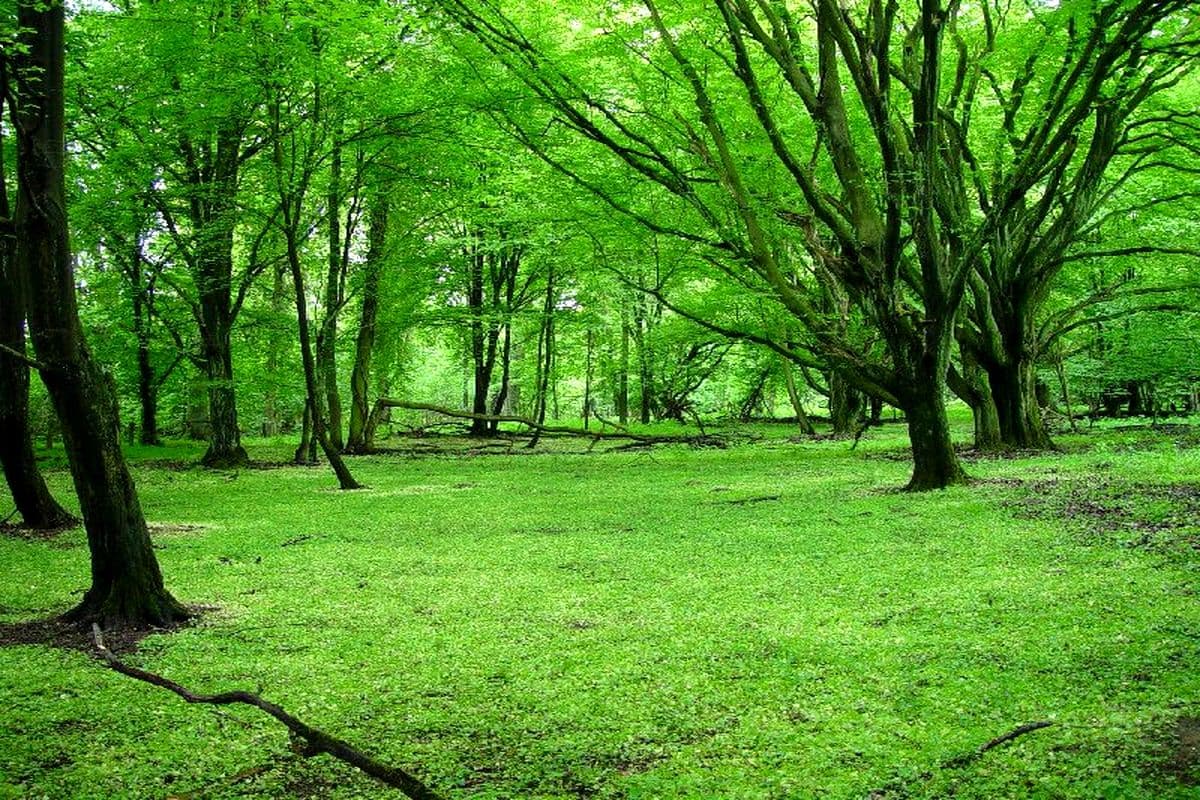
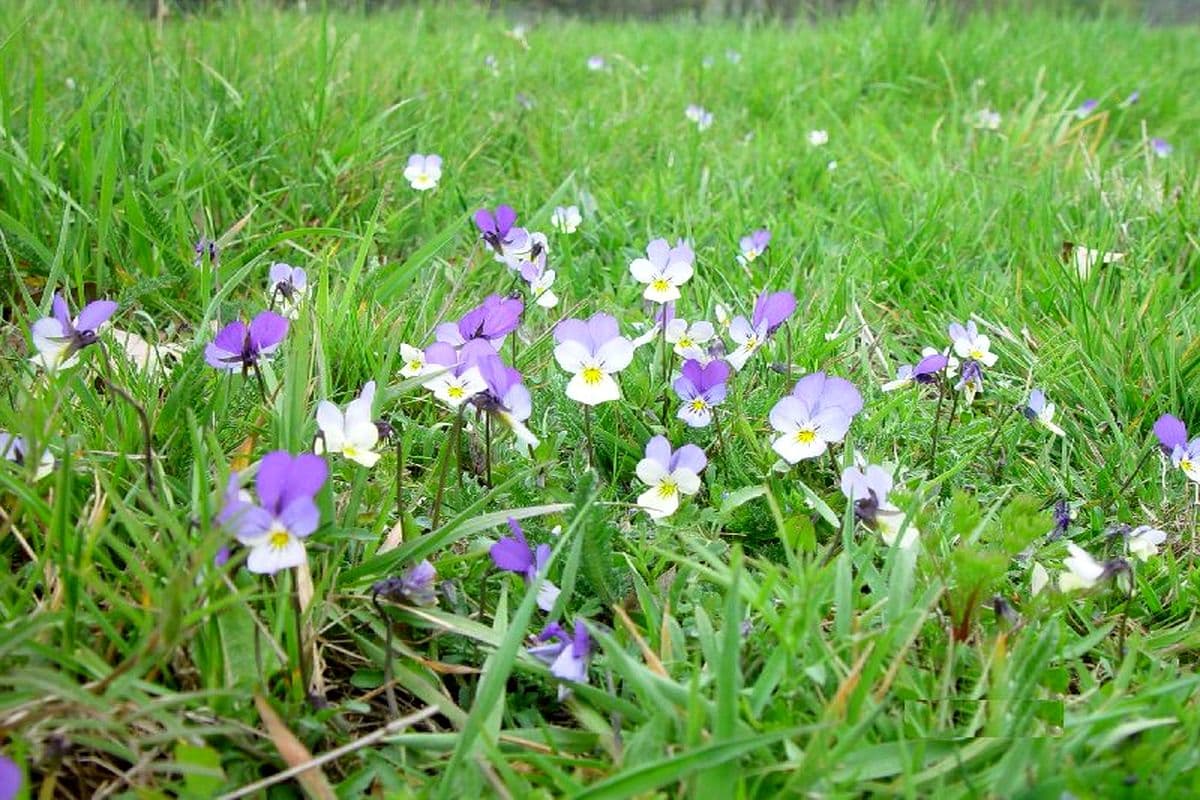
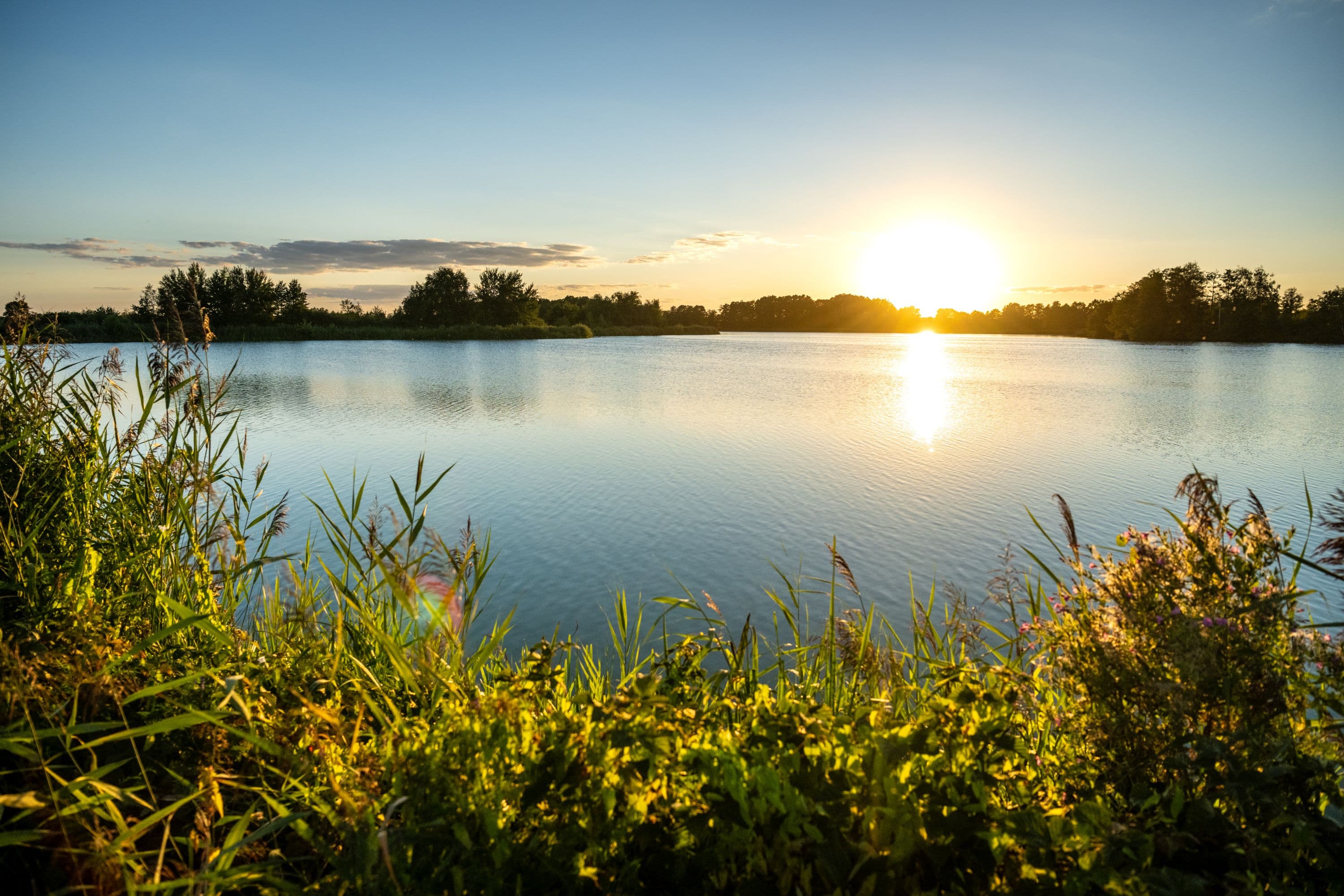
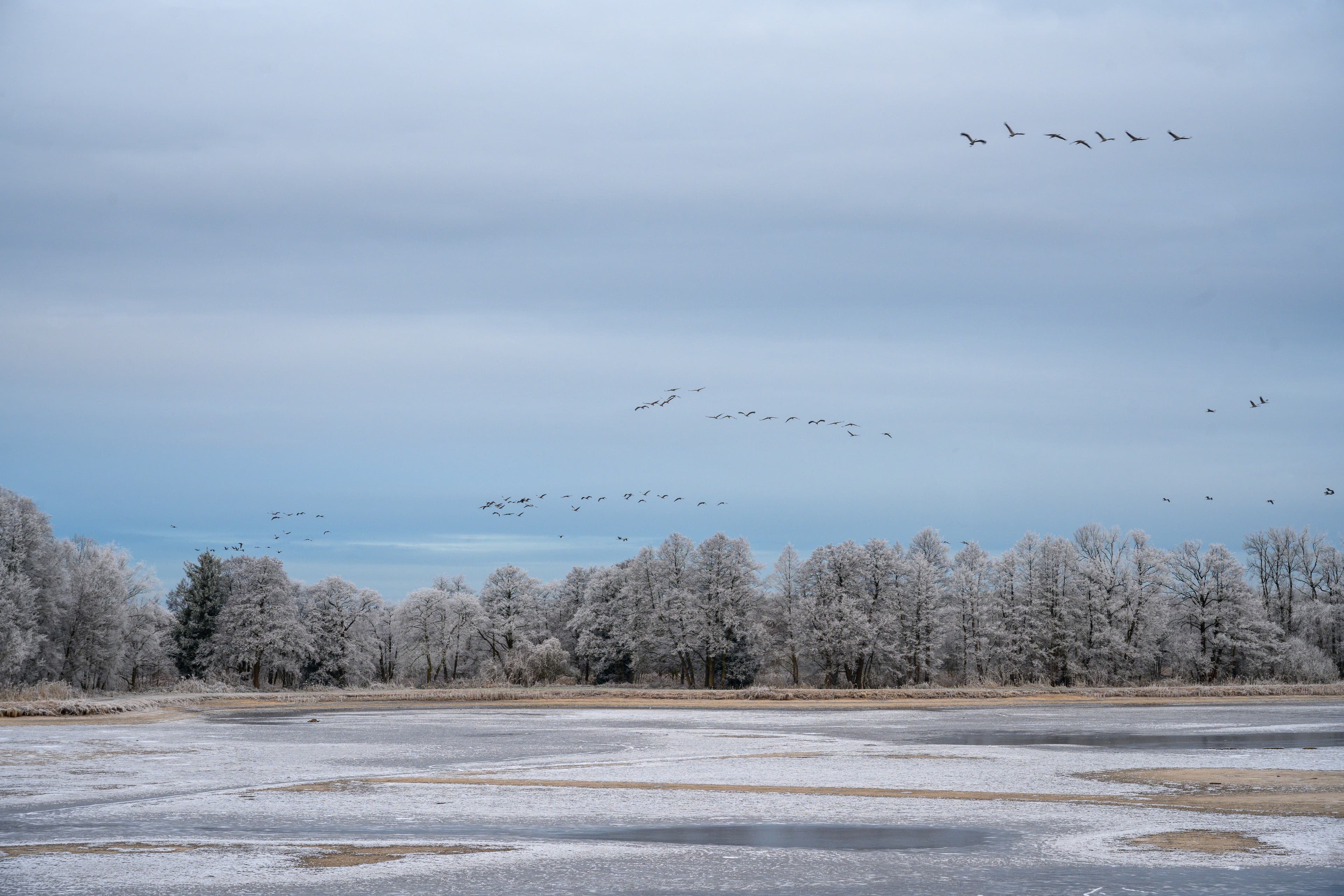
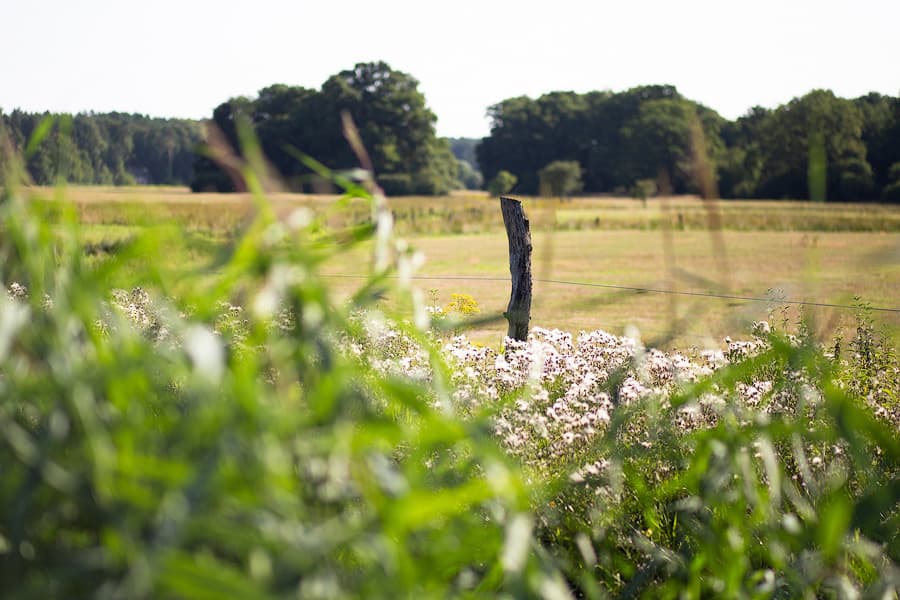
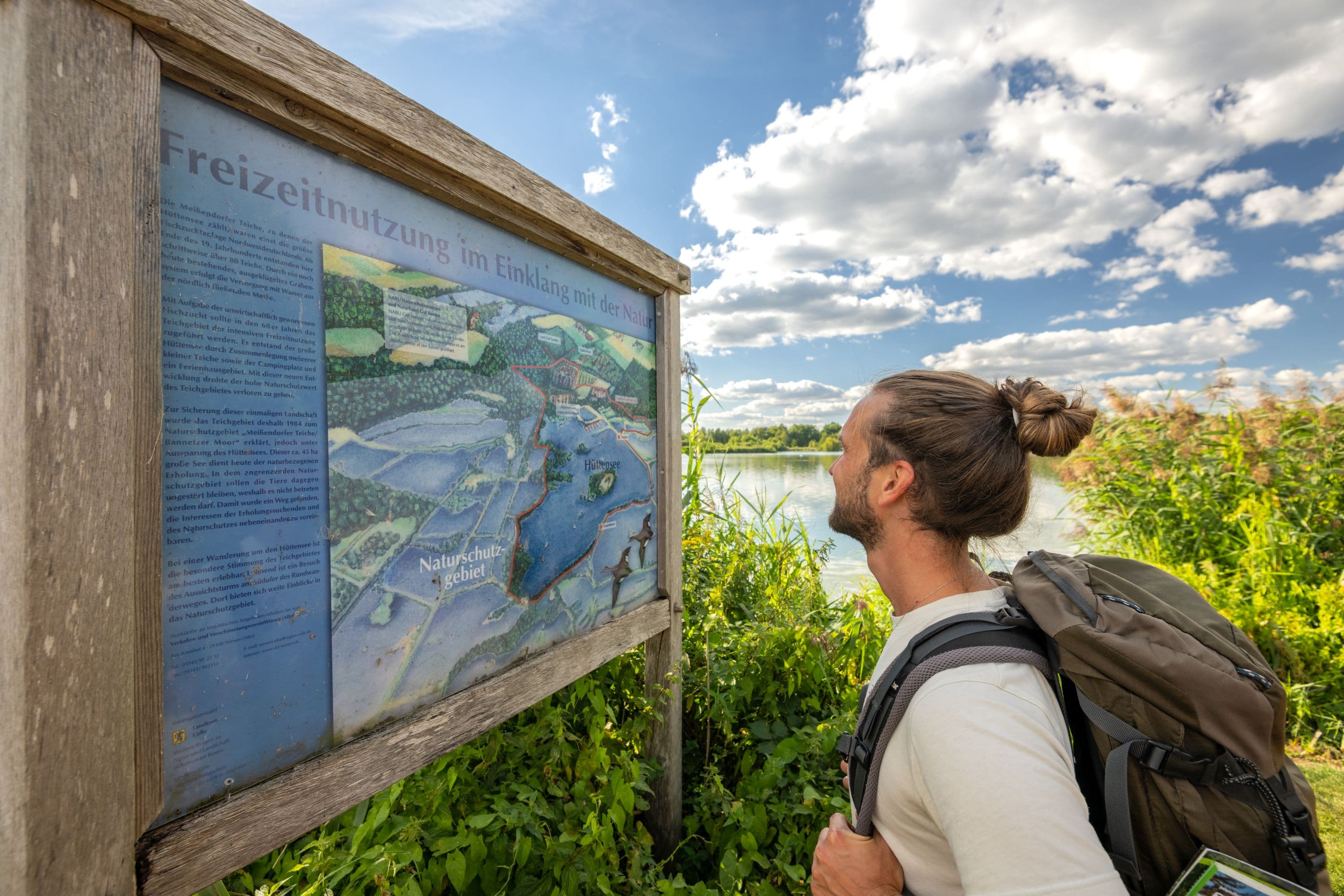
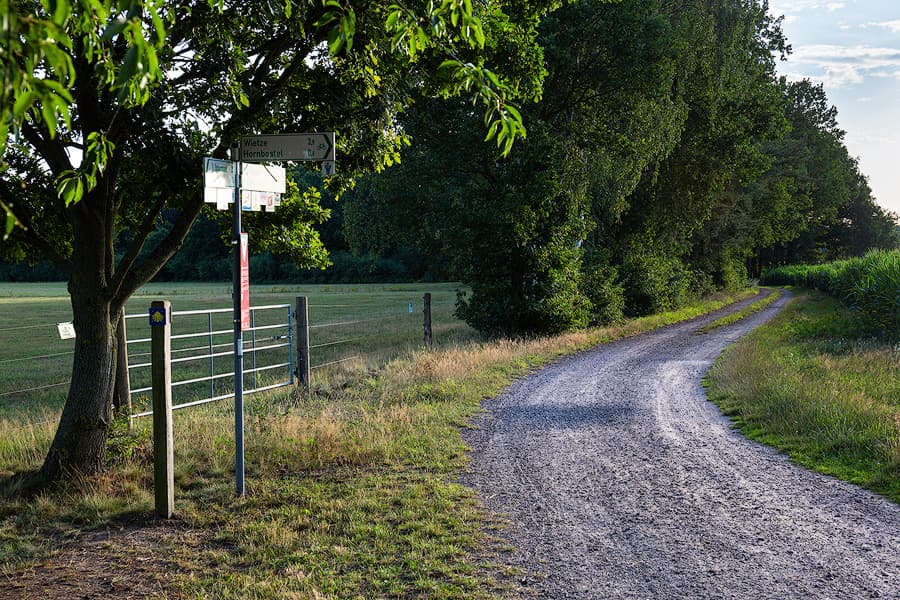
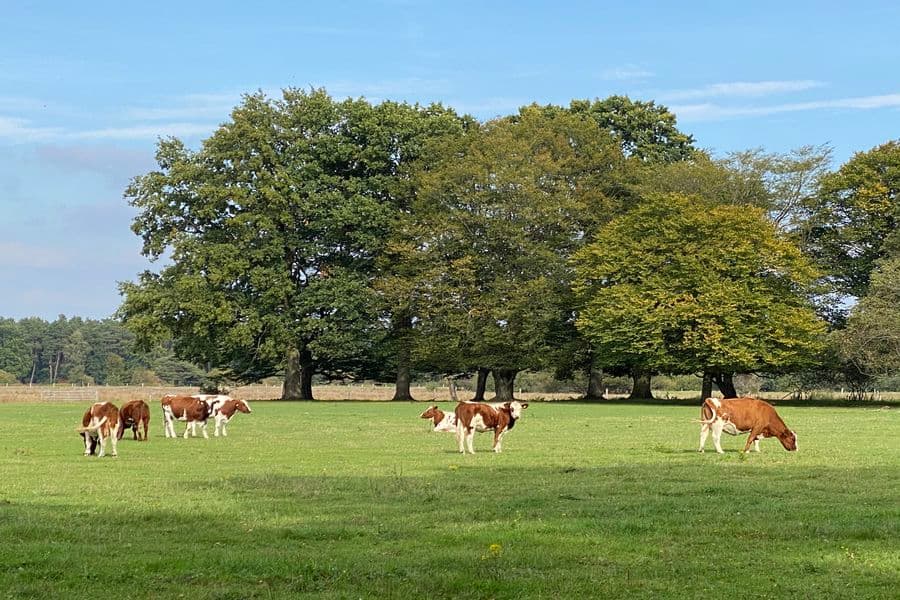
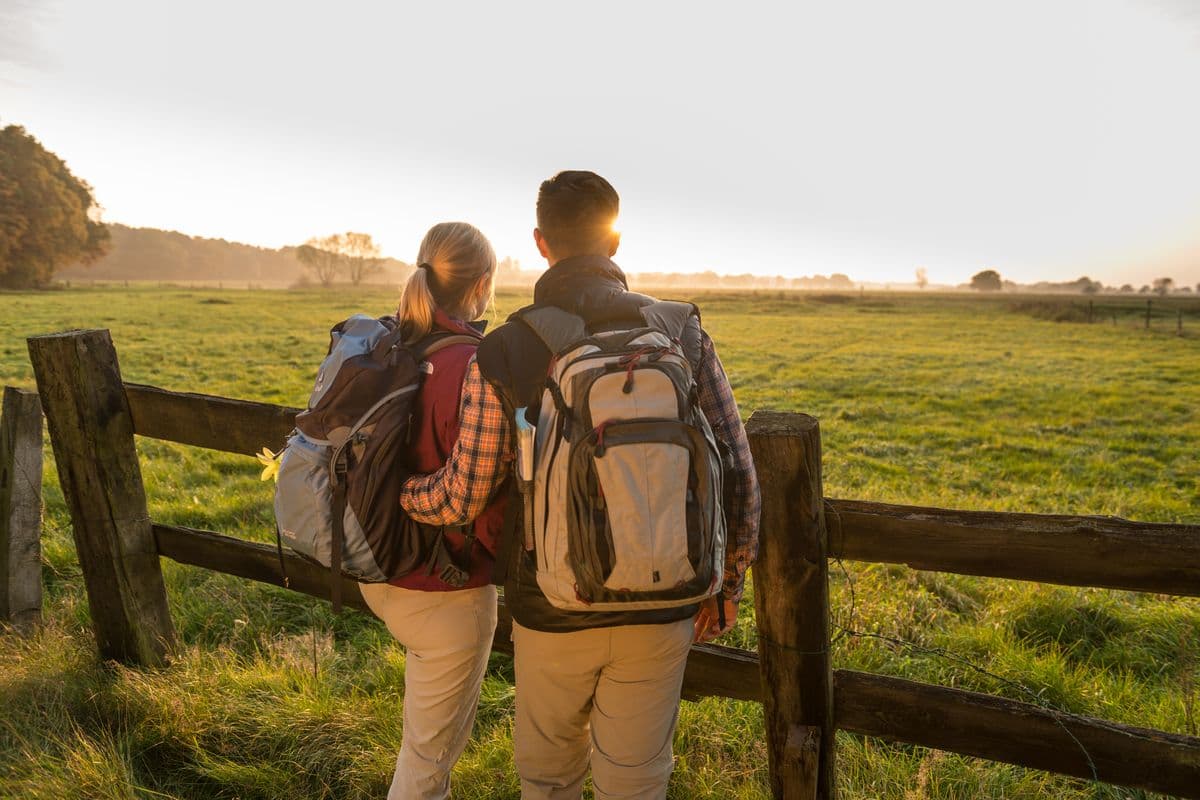
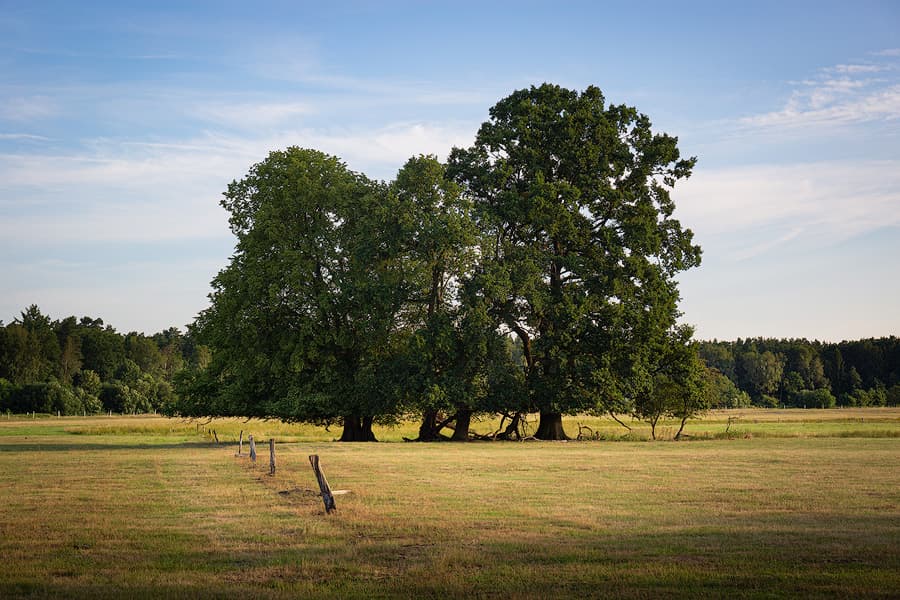
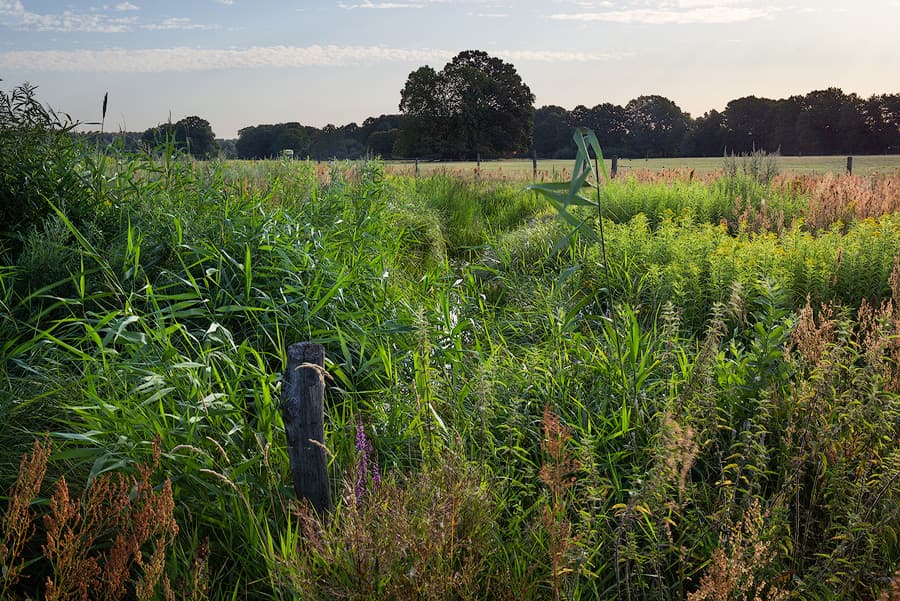
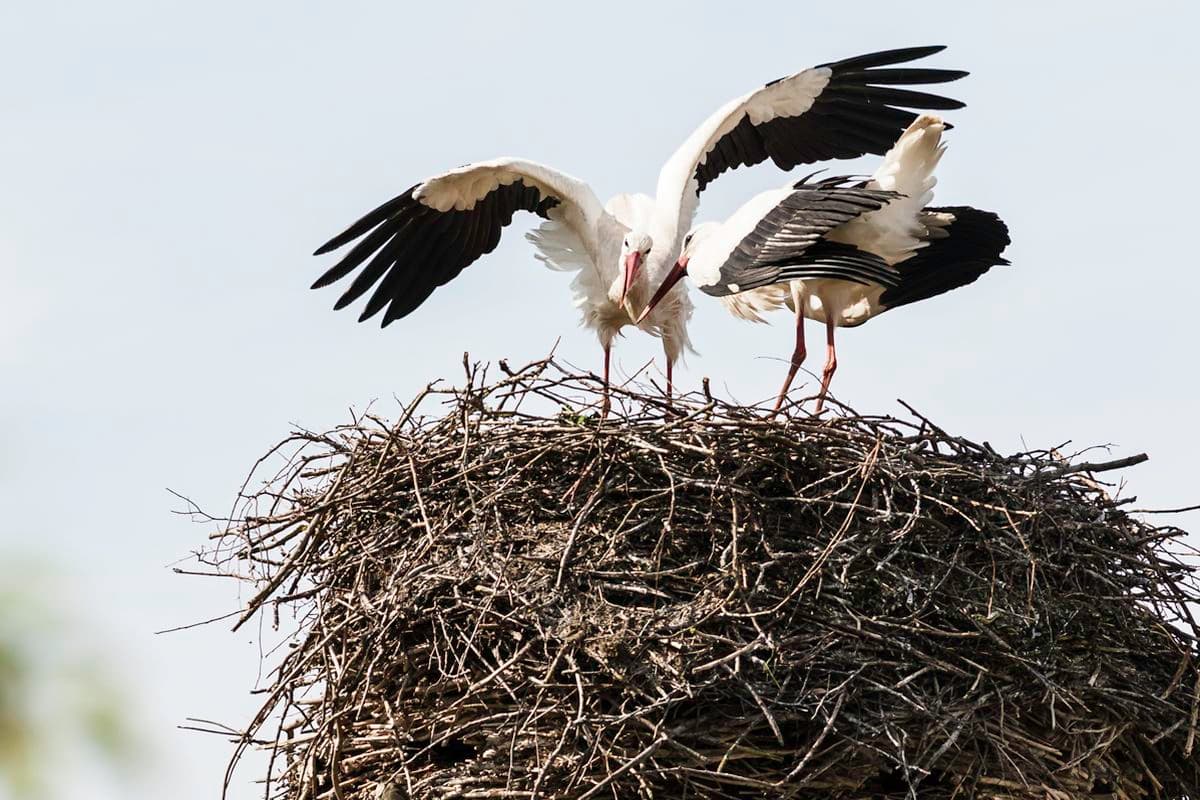
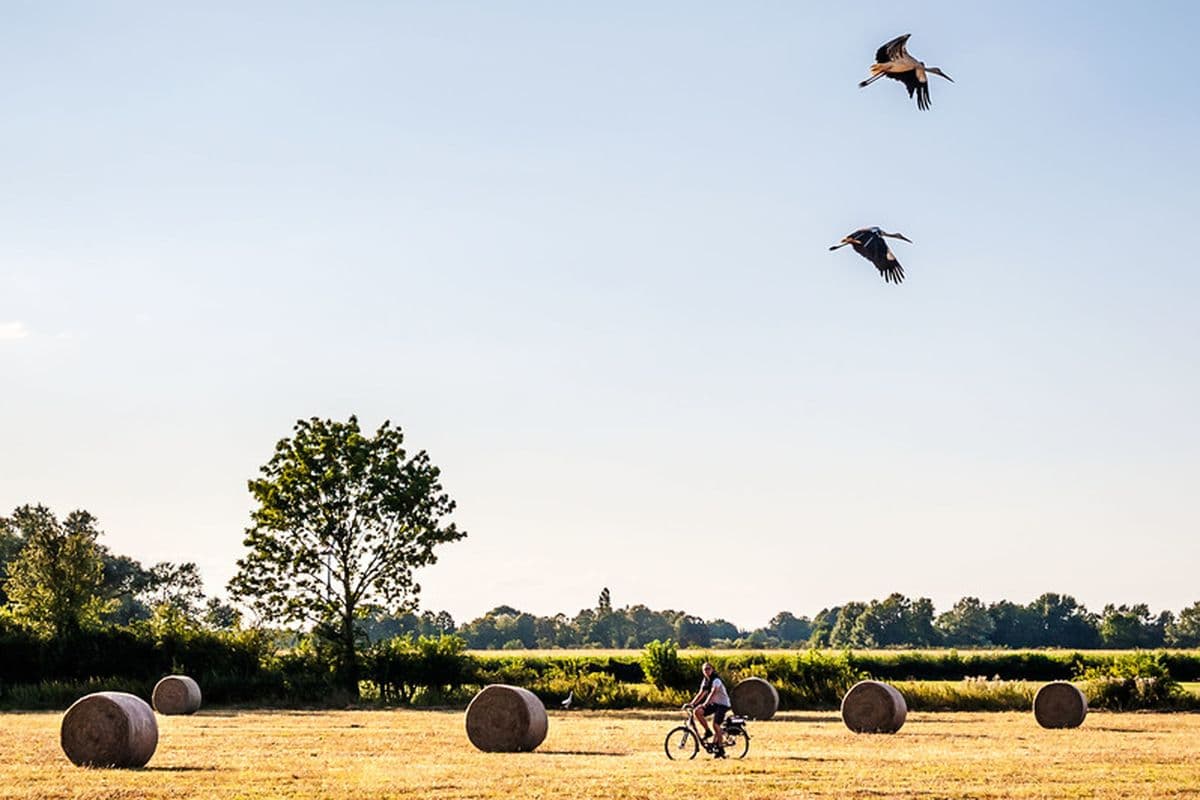
Romantische Heideansichten und ein Freilichtmuseum mit typischen Heidehöfen runden die Tour ab.
Besonderheiten auf dieser Tour:
Aller, Örtze und Meiße
Von Flüssen umgeben
Obwohl die 260 km lange Aller im Zuge der Schiffbarmachung stark begradigt wurde, blieben einige naturnahe Bereiche erhalten. So etwa die Hornbosteler Hutweide, eine durch Beweidung geprägte Kulturlandschaft.
Die 62 km lange Örtze mündet bei Winsen in die Aller. Für den Dichter Herrmann Löns war sie der „echteste Heidefluß“. Beim Anblick des mäandrierenden, naturnahen Flusslaufs mag man ihm zustimmen. Der sommerkalte, klare Fluss bietet Bachforellen und Flusskrebsen einen Lebensraum.
Erleben Sie die Schönheit der Flüsse Aller und Örtze bei einer Paddeltour. Achtung: Auf der Örtze ist nur die 38,5 km lange Strecke zwischen Müden (Örtze) und Winsen (Aller) für Paddler freigegeben (Befahrbarkeit 16. Mai bis 14. Oktober bei ausreichendem Wasserbestand).
Das Wasser der 42 km langen Meiße speist die Meißendorfer Teiche. Ihr einst weit verzweigtes Einzugsgebiet wurde durch Entwässerungsgräben stark verändert. Die Obere Drebber bei Wolthausen ist einer dieser Gräben.
Meißendorfer Teiche und Bannetzer Moor
Seeadler im Blick
Die Meißendorfer Teiche und das südlich anschließende Bannetzer Moor bilden mit 350 Hektar Wasserfläche die größte Wasserlandschaft der Lüneburger Heide.
Haubentaucher, Schellente und Kormoran sind allgegenwärtig. Mit etwas Glück können Sie auch Seeadler und Kraniche beobachten. Für den seltenen Fischotter, für Libellen und Schmetterlinge ist das Gebiet ebenfalls ein Paradies.
Früher wurden die Teiche intensiv zur Fischzucht genutzt, heute steht der Naturschutz im Vordergrund. Mit seinem ersten Kinofilm dokumentierte der Tierfilmer Heinz Sielmann bereits 1948 die faszinierende Schönheit der Teiche. Der NABU hat auf Gut Sunder ein Naturerlebniszentrum mit Seminarbetrieb eingerichtet.
In der interaktiven „Wildtiernis“-Ausstellung stehen Filmaufnahmen der hier lebenden Tiere im Fokus.
Hornbosteler Hutweide
Weißstorch und Edellibelle
Auf einem Abschnitt des Aller-Radweges offenbart sich in Hornbostel an der Hornbosteler Hutweide ein einmaliges Naturreich. Hier können Sie auf einer Bank rasten und den Blick über das Auenland an der Aller schweifen lassen. Die grüne Wiesenlandschaft wird von Rotbunten Rindern beweidet. Rund um das Naturschutzgebiet zieht der Rote Milan seine Kreise und Weißstorch und Edellibellen fühlen sich hier wohl. Am Wegesrand sind Wilde Stiefmütterchen und Schwanenblumen zu finden. Stattliche Eichen und abwechslunsreiche Wälder runden das besondere Landschaftsbild ab.Museumshof Winsen
Alte Heidehöfe wieder aufgebaut
Im Museumshof Winsen können Sie typische Gehöfte aus dem 17. bis 20. Jahrhundert bestaunen.
Zum Großteil in Eigenregie des Museumsvereins realisiert, wurden regionaltypische Gebäude – von Wohnhäusern über Scheunen bis zum Schweinestall oder Treppenspeicher – seit 1982 in verschiedenen Orten der Südheide abgetragen und hier wieder aufgebaut.
Die Häuser werden als Museum, Café, Restaurant, zum Verkauf regionaler Produkte sowie für zahlreiche Kulturveranstaltungen genutzt.
Ab Ostern finden auch viele Veranstaltungen unter freiem Himmel statt. Besonderer Tipp: eine Führung auf Winser Platt –„Damit de plattdüutsche Sproke nich fagetten ward“!

